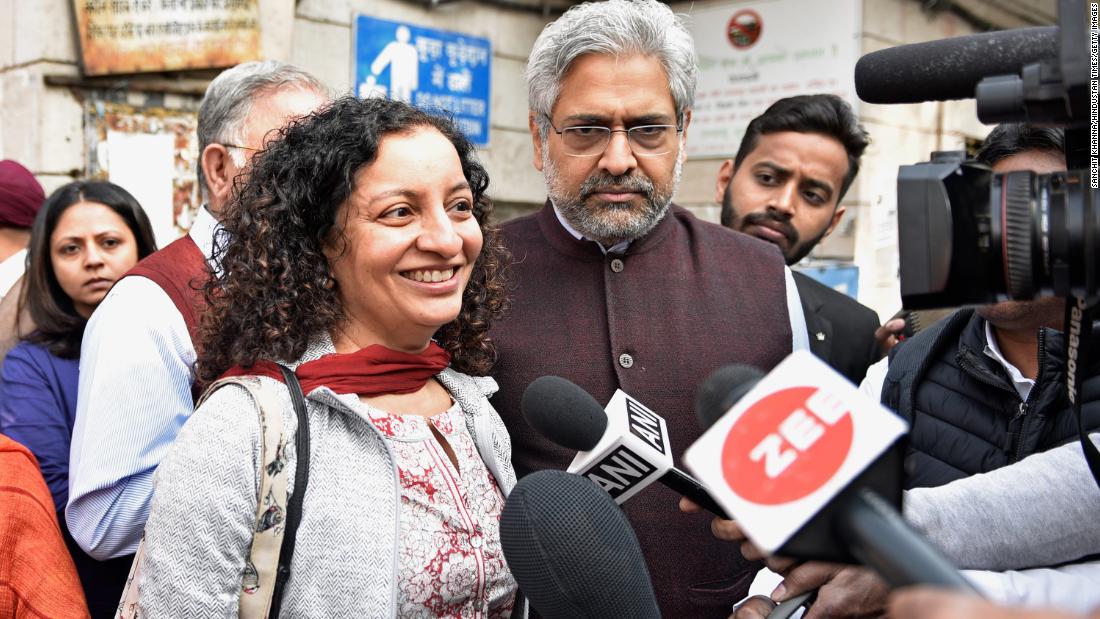Journalist Priya Ramani made the first allegations in a 2017 Vogue India article, in which she described the workplace harassment experience during a job interview with an unidentified editor in a hotel room in Mumbai.
A year later, she identified the anonymous editor as MJ Akbar, a former journalist who was then a junior foreign minister. This prompted more than a dozen women to file charges against Akbar for probing, assault and harassment.
He denied the charges, resigned his position and sued Ramani for defamation a week after she publicly identified him.
On Wednesday – more than two years after the start of the process – the court ruled in favor of Ramani, absolving her of all charges. In a powerful concluding statement, Judge Ravindra Kumar Pandey argued that the country and its institutions have long since failed women and victims of abuse and defended Ramani’s right to speak out even decades after the incident.
“Although some people are respected in society, they, in their personal lives, can show extreme cruelty towards women,” wrote Pandey in his decision. “The time has come for our society to understand sexual abuse and sexual harassment and its implications for victims.”
“Women cannot be punished for raising their voices against sexual abuse on the pretext of criminal defamation, because the right to reputation cannot be protected at the expense of the right to life and the dignity of women guaranteed in the Indian Constitution,” he added. .
Ramani and his supporters welcomed the decision, praising it as a step forward for women in India.
“I can’t stop smiling today,” said Ramani in a note sent to CNN by his lawyer. “This case was not about me, it was about what women face at work. My victory belongs to everyone who spoke during the #metoo movement.
“It is incredible to have your truth validated in court.”
Her lawyer, Rebecca John, called the decision an “astonishing trial”.
“We are very grateful that the court has examined the evidence meticulously,” she said. “I think it is a very important moment for all of us, it is a great moment.”
India’s #MeToo Movement
There followed a flood of high-profile allegations of sexual misconduct and inappropriate behavior, shaking the Indian media and entertainment industries.
In a well-known case, former Bollywood actress Tanushree Dutta spoke publicly about being the victim of an assault allegedly at the hands of a former castmate in 2008. In a separate incident, a Bollywood production company was disbanded after allegations of harassment against one of their co-founders.
A major comedy group popular with Generation Y Indians was also shaken when a working comedian faced charges of harassment. In the media sector, a political journalist also lost his post after allegations of inappropriate behavior, pending an internal investigation.
But the allegations also prompted several defamation lawsuits similar to what Akbar filed against Ramani. In India, if a defamation case is brought before the criminal court, defendants found guilty can face prison sentences of up to two years – a result that adds an additional layer to the victims who speak out.
